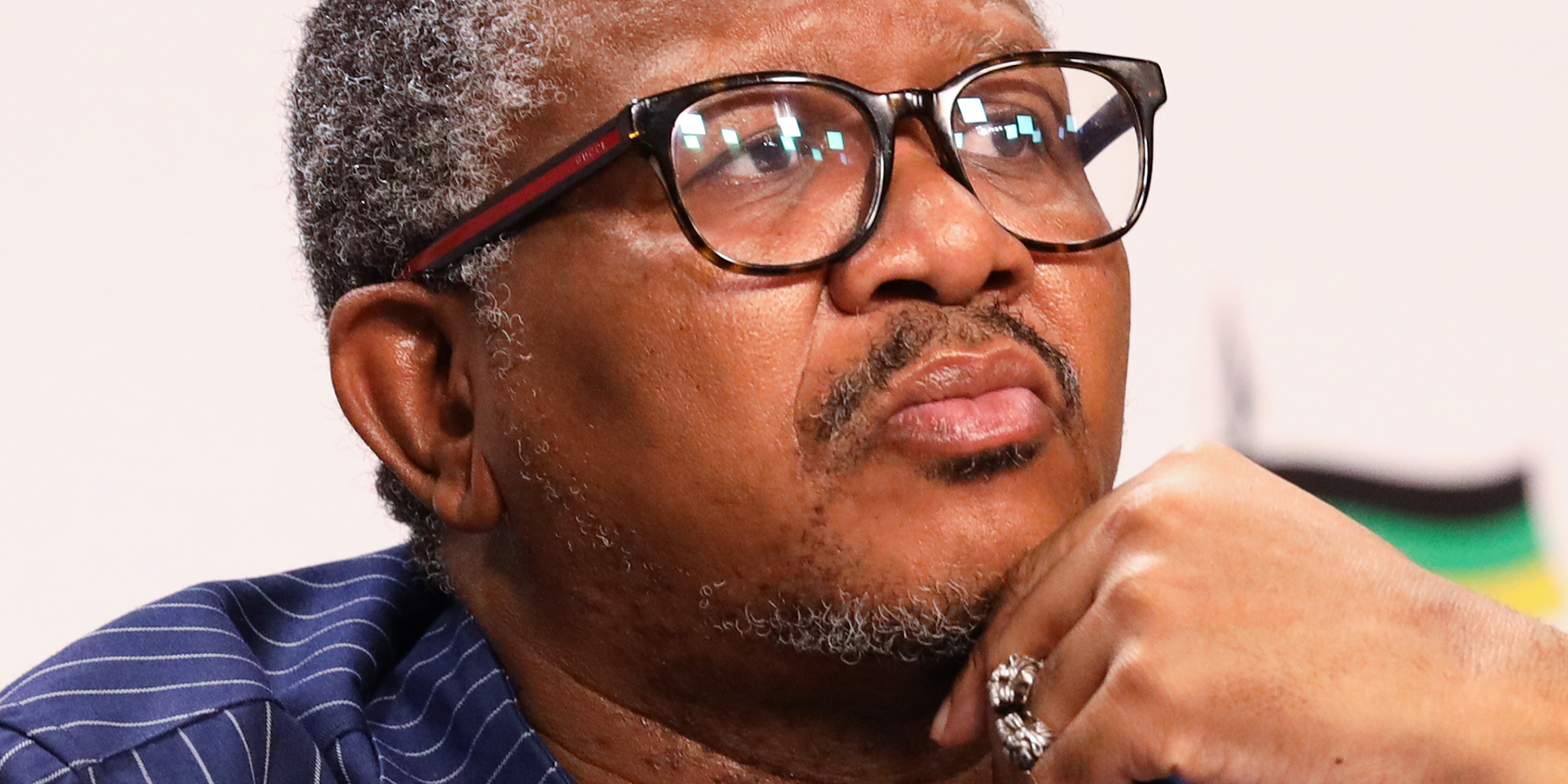Over the weekend, ANC Secretary-General Fikile Mbalula said he believed the party’s working arrangements with the EFF in councils should end. He even hinted that the ANC should work with the DA. At the same time, ActionSA and several other opposition parties have said the DA needs to explicitly rule out ever working with the ANC, for their “Moonshot Pact” to work.
Over the past few weeks, there have been indications of problems in the relationship between the ANC and the EFF and the way they are working together in several Gauteng councils and metros. This is despite a claim last week by the ANC premier in Gauteng, Panyaza Lesufi, that the ANC would work with the EFF to “crush” an upcoming confidence vote in Joburg’s Al Jama-ah mayor, Kabelo Gwamanda.
First, two weeks ago, News24 reported that Jongizizwe Dlabathi, the leader of the ANC caucus in Ekurhuleni, wrote to Mbalula and other officials that he believed there was “no strategic value” in working with the EFF. He said this was also because the EFF wanted to “liquidate” the ANC from power.
The EFF holds the balance of power in the Ekurhuleni council and only ended up working with the ANC after previously voting for the DA’s Tania Campbell as mayor.
Then, this weekend, the Sunday Times quoted Mbalula as telling an ANC Youth League event that the ANC must pull out of its coalition arrangements with the EFF.
He was quoted as saying: “We must, as the ANC, review this marriage we have with them here in Johannesburg … We can’t go with people who want to see us out of power. We’d rather go with the DA, fully aware that here’s the enemy and then when we meet them after the election that will be it.”
Mbalula also said that EFF leader Julius Malema will only be in the Union Buildings next year “in his dreams”.
This is an important comment. Mbalula is the secretary-general of the party. In recent times, the person who holds this office has set the political tone. Mbalula would certainly have to be a part of the process of giving permission for ANC regions to agree to coalition deals with any other party.
It also seems unlikely that the ANC president would want to work with the EFF, given their history — President Cyril Ramaphosa chaired the final process that led to Malema’s expulsion from the party which was repaid over the decade with the EFF commander-in-chief’s personal and vicious attacks on him.
Mbalula’s statement suggests it would be harder for those in the ANC who do want to work with the EFF to convince the party’s leadership to do so — it is near impossible to push any decision through against a bloc formed by the party president and the secretary-general.
The Mashatile factor
At the moment, it appears that some leaders in Gauteng, such as Lesufi and probably Deputy President Paul Mashatile, are among those who do want to work with the EFF.
This may lead to an interesting dynamic, where the future direction of the ANC rests on whether Mashatile is able to achieve what his critics claim is his current aim: to assume power as the leader of the party.
Meanwhile, Mbalula’s comment about working with the DA is at least the second comment from someone in the party in this direction.
Earlier this year, the leader of the ANC’s Veterans’ League, Snuki Zikalala, made a similar comment, suggesting that working with the EFF is unstrategic.
The DA may now find itself in a difficult position.
It would appear contradictory, on the one hand, for it to continue courting smaller parties for its “Moonshot Pact”, while, on the other hand, being courted by the ANC.
But this position is entirely sustainable.
It is likely that virtually every party is going to have what US foreign policy officials call “strategic ambiguity”, where they refuse to be explicit about their real aims while waiting to assess the balance of power after the election itself.
Also, Mbalula could be attempting to apply pressure on the DA. Just by raising the issue, he puts the DA in a position where it has to answer questions about whom it will go with.
He is thus able to sow distrust among the smaller parties, essentially reminding them that the DA could drop them at the last moment.
The fact that DA leader John Steenhuisen has in the past spoken publicly about working with the ANC will surely help Mbalula here.
We are likely to see much of this kind of political language in the next few months, where parties publicly claim they could work with this or that party, when the real aim is to undermine possible coalitions.
At the same time, there is little evidence that Mbalula is a politician of principle, or is concerned about consistency. It is entirely possible that he will change his mind or his political direction in the next few months or even weeks.
Until the day of voting next year, parties and their leaders will attempt to further instil a sense of distrust in many voters. Their aim will be to create as much political space for themselves as possible. They will engage in doublespeak, deliberate ambiguity and outright lies. Get the popcorn ready…
Unfortunately, none of this jockeying and gaming will help the residents of Joburg get water back in their taps. DM





